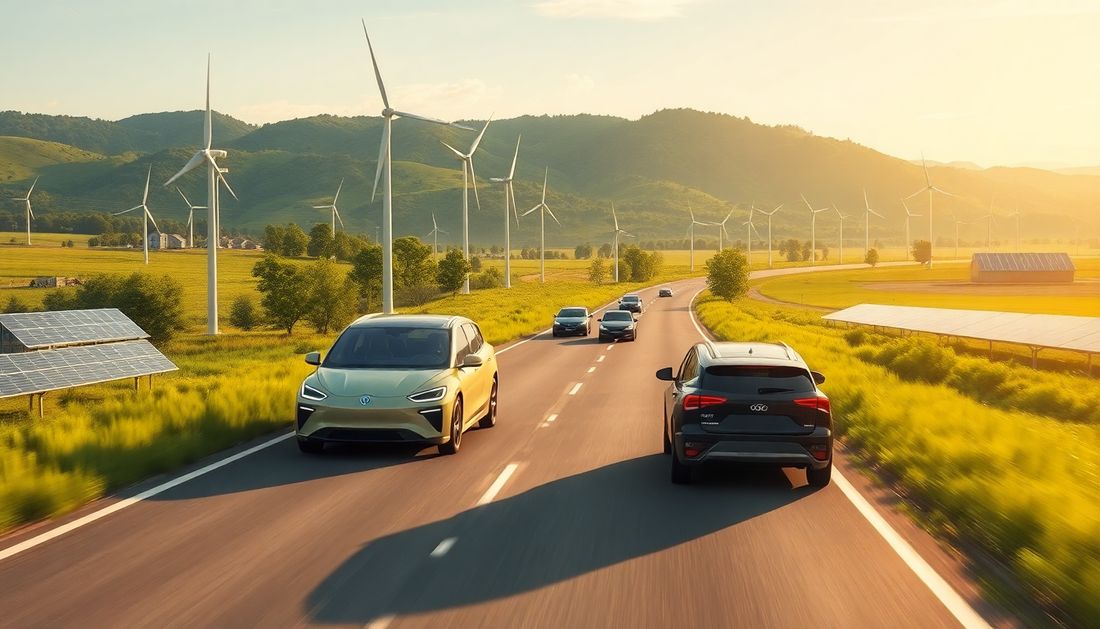In the ever-evolving landscape of environmental consciousness, the issue of automotive pollution has become a pressing concern for individuals, communities, and policymakers alike. As the world grapples with the alarming effects of climate change, it is imperative that we take proactive steps to mitigate the impact of our transportation choices. This blog post aims to explore practical strategies and innovative solutions that can help us reduce the environmental footprint of our cars and pave the way for a more sustainable future.
Understanding the Scope of Car Pollution
The transportation sector is a significant contributor to global greenhouse gas emissions, with passenger vehicles accounting for a substantial portion of this environmental burden. Tailpipe emissions, including carbon dioxide (CO2), nitrogen oxides (NOx), and particulate matter, not only contribute to air pollution but also have far-reaching consequences on our health and the health of our planet.
The environmental impact of car pollution is multifaceted. Greenhouse gas emissions from vehicles are a primary driver of climate change, leading to rising temperatures, sea level rise, and more frequent extreme weather events. Air pollution from vehicle exhaust can also have detrimental effects on human respiratory health, causing respiratory illnesses, cardiovascular problems, and even premature deaths.
Practical Strategies for Reducing Car Pollution
Addressing the challenge of car pollution requires a multifaceted approach, involving both individual actions and broader societal initiatives. Here are some practical strategies that can help reduce the environmental impact of our vehicles:
Vehicle Maintenance
Proper vehicle maintenance is a crucial step in minimizing car pollution. Regular tune-ups, oil changes, and air filter replacements can help ensure your vehicle is running efficiently, reducing fuel consumption and emissions. Maintaining proper tire inflation can also improve fuel efficiency and reduce the wear and tear on your tires, ultimately lowering your carbon footprint.
Driving Habits
The way we drive can have a significant impact on the amount of pollution our vehicles produce. Smooth acceleration and braking, avoiding unnecessary idling, and consolidating trips can all contribute to reduced fuel consumption and emissions. Carpooling or using public transportation whenever possible can also help lower the overall environmental impact of our transportation choices.
Alternative Transportation
Exploring alternative transportation options is a powerful way to reduce car pollution. Cycling, walking, and utilizing public transit systems can significantly lower your carbon footprint while also promoting physical activity and improving overall well-being. For longer distances or when driving is necessary, consider investing in an electric or hybrid vehicle, which offer significantly lower emissions compared to traditional gasoline-powered cars.
Technological Solutions
Advancements in automotive technology have paved the way for innovative solutions to reduce car pollution. Fuel efficiency improvements, the development of alternative fuel sources, and the rise of electric and hybrid vehicles are all contributing to a greener future for transportation. As these technologies continue to evolve and become more accessible, they will play a crucial role in mitigating the environmental impact of our vehicles.
Personal and Community Initiatives
Individual actions and community-driven efforts can also contribute to the reduction of car pollution. Participating in carbon offset programs, supporting green transportation policies, and encouraging workplace sustainability initiatives can all help create a more environmentally conscious culture around transportation. By working together, we can amplify the impact of our efforts and drive meaningful change.
Conclusion
The challenge of reducing car pollution is multifaceted, but the solutions are within our reach. By adopting practical strategies, embracing technological advancements, and fostering a collective commitment to sustainable transportation, we can collectively drive towards a greener future. Each of us has the power to make a difference, whether through our daily driving habits, our transportation choices, or our advocacy for eco-friendly policies. Let us seize this opportunity to create a cleaner, healthier, and more sustainable world for generations to come.

